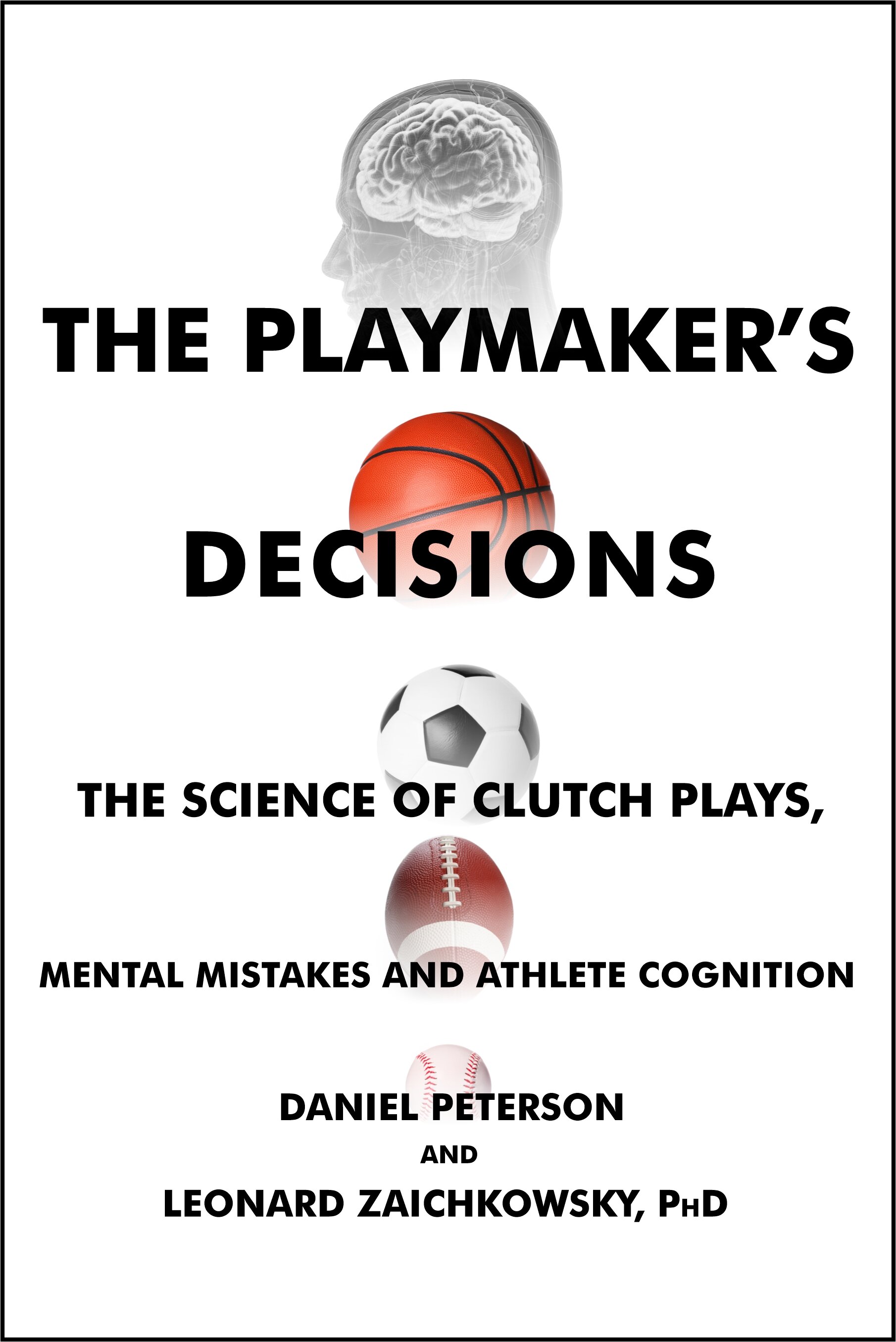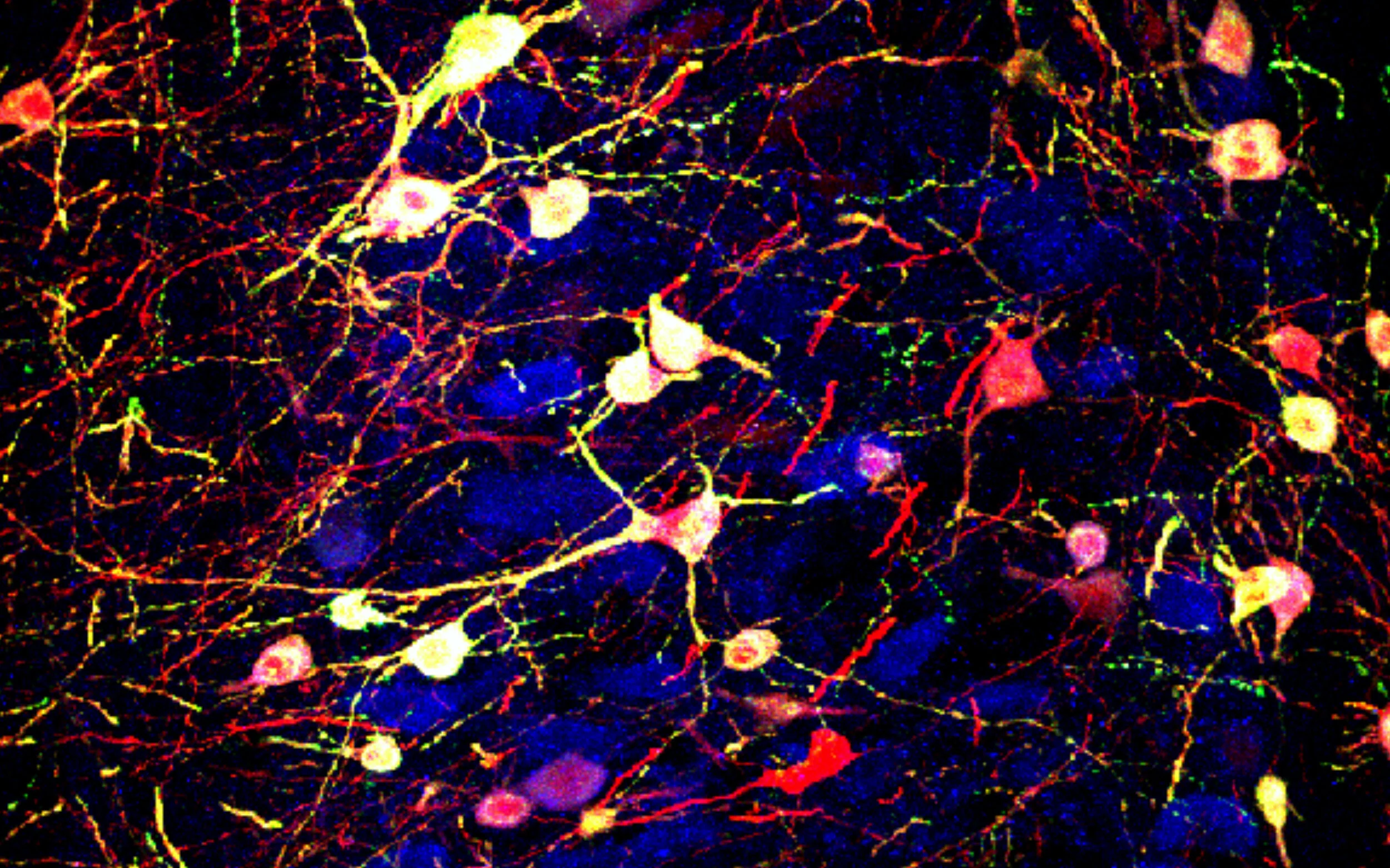Would You Rather Be A Guitar Hero Or A Golf Legend?
/
Despite being a well-respected cognitive psychology professor at New York University, Gary Marcus had a secret ambition; to shred amazing riffs that would make Eric Clapton envious. The fact that he had been gently told as a child he had no sense of rhythm or tone did not discourage his dream. With a one year sabbatical from NYU available, he turned himself into a lab experiment of how to teach a middle-aged dog new “licks”.
At about the same time, Dan McLaughlin was growing restless with his career as a commercial photographer in Portland. However, life as a professional golfer seemed to be the dream destination if only he could find the right path to get there.
On opposite ends of the country, two guys pursuing different goals but with the same underlying principle; devote a large chunk of dedicated time breaking down and learning complicated skills with the help of experienced coaches.
They had both heard of a theory out there by Florida State psychology professor K. Anders Ericsson that claimed the best performers in a variety of fields had accumulated around 10,000 hours of specific, deliberate practice before they became world-class. Some took more hours, some less, but on average it provided a rough target to shoot for before expecting magic with a Stratocaster or a five iron.
While Marcus’ window of full-time learning was limited to one year, McLaughlin estimated he could reach 10,000 hours of structured golf practice in six years or around 2016. These timeframes seemed to match their respective goals; McLaughlin’s ultimate measure of success would be to actually earn a player’s card on the PGA Tour, while Marcus just wanted to launch a side passion, maybe start a band.
Given his scientific background, Professor Marcus was able to combine his knowledge of learning theory with his quest. In fact, he documented the entire adventure in his 2012 book, Guitar Zero, which offers a mix of cognitive science, music theory and guitar stories. McLaughlin tracks his progress at his web site, The Dan Plan, (and soon in an upcoming book), where he provides daily updates including the countdown to 10,000 hours (only 6,220 to go!) See their video overviews below.
I recently caught up with both men to compare their methods and their progress:
Gary, are you familiar with Dan McLaughlin’s quest to teach himself golf in 10,000 hours?
Gary Marcus: “I've been meaning to read more about his story; I think he's been more dedicated about logging the specifics of his practice than I have been. But the number of 10,000 hours itself is pretty crude; there are well-documented cases of people becoming chess masters in barely more than 3,000 hours, and others take 25,000. Some depends on genes, but it also depends on how you practice.”
Dan, what about you; did you know of Gary’s journey to be a guitar god?
Dan McLaughlin: “I am familiar with Gary's book although have not personally read it. The writer that I am working with for The Dan Plan's book read Guitar Zero as part of his research and has told me some aspects of his story. A similarity could be seen in his full-on approach to learning, and perhaps the biggest difference is the time frame.”
How related is learning the guitar with, say, learning to golf?
Gary: “There are some obvious differences (e.g. great weight on muscle development in golf), but both are complex skills that require extensive neural rewiring. Guitar has its own kind of athleticism, and arguably places greater demands on memory, but in both cases precision is paramount, and one must integrate a great deal of perceptual input in order to perform appropriate motor actions. In both cases, self-discipline is paramount, and some kind of coaching is critical for anyone wishing to be a top performer. Of course, the outfits are better in rock and roll...”
Has your learning progress in golf been pretty linear with gradual improvement every month, or does it go in bursts with plateaus where you stay the same for awhile?
Dan: “Learning, from what I have experienced, comes in chunks. This is why putting in time is so crucial, because you never know when the next big learning bump will occur. Sometimes days will pass where it seems like nothing is being achieved then that will be followed by a period of great momentum. In the big picture it may be possible to see that learning evens out over time, but when you are in the thick of it the biggest moves always come in bursts.”
Have you had periods where you've gone backwards in your progress? How do you handle that emotionally?
Dan: “Every time you stretch out your neck to improve the first step is in reverse. I have yet to make a large change in my swing and immediately see a positive outcome. Rather, when you are in transition, it at first creates errors which are then followed by a slow improvement in consistency and eventually the new move is grooved and the positive results are reaped. Emotionally, you have to allow for building periods where you know that you will be moving in reverse for a while before you get back to your level and break through to the next.”
Gary: “Learning to cope with failure and to channel into improved performance is an art that any human being ought to develop, no matter what they are learning. Some of that is about setting proper goals, and appreciating progress.”
Both music and golf have “rules” or foundational elements that need to be learned. How do our brains wire themselves to follow these principles?
Gary: “Music is a special case in that there is a lot of formal knowledge (about music theory) that can be taught, both demand a lot of unconscious knowledge, too. I'm not a golfer, but I wonder whether there are (aside from the formal rules of the game) mathematical principles in golf that are analogous to the principles of harmony and voice leading. Then again, lots of people make beautiful music without any formal understanding of those rules. (And as in any creative endeavor, the best artists have a good sense of when it is effective to break the rules.)”
In Guitar Zero, you explain that learning a new skill is often spread across multiple areas of the brain. Yet sometimes we hear that specific brain regions are responsible for specific tasks. Can you help us understand the difference?
Gary: “I think of the brain as being made up of many subcomponents, whereas I think of most things that we know as depending on choosing that right combination of those components for a particular job. Individual bits of brain tissue often do pretty precise things, but do those same things in the service of many different computations. So-called “muscle memory” is really in the brain, distributed across areas such as somatosensory cortex and the basal ganglia; you don't learn anything unless you've rewired the brain.”
Can there be a transference of guitar skill to a related task like playing a violin?
Gary: “For sure, though I am told that the bow is a whole other dimension. But lots of things about rhythm and pitch and motion and perception transfer reasonably well. Look at people like Prince, Stevie Wonder, Paul McCartney, etc who play loads of instruments well.”
Do you think a person’s genes play a role in being a talented performer? Are some people just "born with it"?
Dan: “If your genetics are somewhere in the norm of the bell curve I do not think that genes play a role in being a great golfer. There are certain limiting factors such as bone structure limiting range of motion or fused joints, but outside of the extremes we are all capable of being great at this sport. If there was a genetic advantage then there would be a prototype golfer and from what I see golf champions come in all shapes and sizes.”
Gary: You have to have the genes to be Jimi Hendrix, but all you have to do enjoy yourself is to be sufficiently dedicated, and to allow yourself to enjoy the journey, rather than fixating on the destination.
Gary and Dan, thanks so much for your time and we hope to see you on stage and on the leaderboard!
Join Axon Sports on Twitter and Facebook.
At about the same time, Dan McLaughlin was growing restless with his career as a commercial photographer in Portland. However, life as a professional golfer seemed to be the dream destination if only he could find the right path to get there.
On opposite ends of the country, two guys pursuing different goals but with the same underlying principle; devote a large chunk of dedicated time breaking down and learning complicated skills with the help of experienced coaches.
They had both heard of a theory out there by Florida State psychology professor K. Anders Ericsson that claimed the best performers in a variety of fields had accumulated around 10,000 hours of specific, deliberate practice before they became world-class. Some took more hours, some less, but on average it provided a rough target to shoot for before expecting magic with a Stratocaster or a five iron.
While Marcus’ window of full-time learning was limited to one year, McLaughlin estimated he could reach 10,000 hours of structured golf practice in six years or around 2016. These timeframes seemed to match their respective goals; McLaughlin’s ultimate measure of success would be to actually earn a player’s card on the PGA Tour, while Marcus just wanted to launch a side passion, maybe start a band.
Given his scientific background, Professor Marcus was able to combine his knowledge of learning theory with his quest. In fact, he documented the entire adventure in his 2012 book, Guitar Zero, which offers a mix of cognitive science, music theory and guitar stories. McLaughlin tracks his progress at his web site, The Dan Plan, (and soon in an upcoming book), where he provides daily updates including the countdown to 10,000 hours (only 6,220 to go!) See their video overviews below.
I recently caught up with both men to compare their methods and their progress:
Gary, are you familiar with Dan McLaughlin’s quest to teach himself golf in 10,000 hours?
Gary Marcus: “I've been meaning to read more about his story; I think he's been more dedicated about logging the specifics of his practice than I have been. But the number of 10,000 hours itself is pretty crude; there are well-documented cases of people becoming chess masters in barely more than 3,000 hours, and others take 25,000. Some depends on genes, but it also depends on how you practice.”
Dan, what about you; did you know of Gary’s journey to be a guitar god?
Dan McLaughlin: “I am familiar with Gary's book although have not personally read it. The writer that I am working with for The Dan Plan's book read Guitar Zero as part of his research and has told me some aspects of his story. A similarity could be seen in his full-on approach to learning, and perhaps the biggest difference is the time frame.”
How related is learning the guitar with, say, learning to golf?
Gary: “There are some obvious differences (e.g. great weight on muscle development in golf), but both are complex skills that require extensive neural rewiring. Guitar has its own kind of athleticism, and arguably places greater demands on memory, but in both cases precision is paramount, and one must integrate a great deal of perceptual input in order to perform appropriate motor actions. In both cases, self-discipline is paramount, and some kind of coaching is critical for anyone wishing to be a top performer. Of course, the outfits are better in rock and roll...”
Has your learning progress in golf been pretty linear with gradual improvement every month, or does it go in bursts with plateaus where you stay the same for awhile?
Dan: “Learning, from what I have experienced, comes in chunks. This is why putting in time is so crucial, because you never know when the next big learning bump will occur. Sometimes days will pass where it seems like nothing is being achieved then that will be followed by a period of great momentum. In the big picture it may be possible to see that learning evens out over time, but when you are in the thick of it the biggest moves always come in bursts.”
Have you had periods where you've gone backwards in your progress? How do you handle that emotionally?
Dan: “Every time you stretch out your neck to improve the first step is in reverse. I have yet to make a large change in my swing and immediately see a positive outcome. Rather, when you are in transition, it at first creates errors which are then followed by a slow improvement in consistency and eventually the new move is grooved and the positive results are reaped. Emotionally, you have to allow for building periods where you know that you will be moving in reverse for a while before you get back to your level and break through to the next.”
Gary: “Learning to cope with failure and to channel into improved performance is an art that any human being ought to develop, no matter what they are learning. Some of that is about setting proper goals, and appreciating progress.”
Both music and golf have “rules” or foundational elements that need to be learned. How do our brains wire themselves to follow these principles?
Gary: “Music is a special case in that there is a lot of formal knowledge (about music theory) that can be taught, both demand a lot of unconscious knowledge, too. I'm not a golfer, but I wonder whether there are (aside from the formal rules of the game) mathematical principles in golf that are analogous to the principles of harmony and voice leading. Then again, lots of people make beautiful music without any formal understanding of those rules. (And as in any creative endeavor, the best artists have a good sense of when it is effective to break the rules.)”
In Guitar Zero, you explain that learning a new skill is often spread across multiple areas of the brain. Yet sometimes we hear that specific brain regions are responsible for specific tasks. Can you help us understand the difference?
Gary: “I think of the brain as being made up of many subcomponents, whereas I think of most things that we know as depending on choosing that right combination of those components for a particular job. Individual bits of brain tissue often do pretty precise things, but do those same things in the service of many different computations. So-called “muscle memory” is really in the brain, distributed across areas such as somatosensory cortex and the basal ganglia; you don't learn anything unless you've rewired the brain.”
Can there be a transference of guitar skill to a related task like playing a violin?
Gary: “For sure, though I am told that the bow is a whole other dimension. But lots of things about rhythm and pitch and motion and perception transfer reasonably well. Look at people like Prince, Stevie Wonder, Paul McCartney, etc who play loads of instruments well.”
Do you think a person’s genes play a role in being a talented performer? Are some people just "born with it"?
Dan: “If your genetics are somewhere in the norm of the bell curve I do not think that genes play a role in being a great golfer. There are certain limiting factors such as bone structure limiting range of motion or fused joints, but outside of the extremes we are all capable of being great at this sport. If there was a genetic advantage then there would be a prototype golfer and from what I see golf champions come in all shapes and sizes.”
Gary: You have to have the genes to be Jimi Hendrix, but all you have to do enjoy yourself is to be sufficiently dedicated, and to allow yourself to enjoy the journey, rather than fixating on the destination.
Gary and Dan, thanks so much for your time and we hope to see you on stage and on the leaderboard!
Join Axon Sports on Twitter and Facebook.













